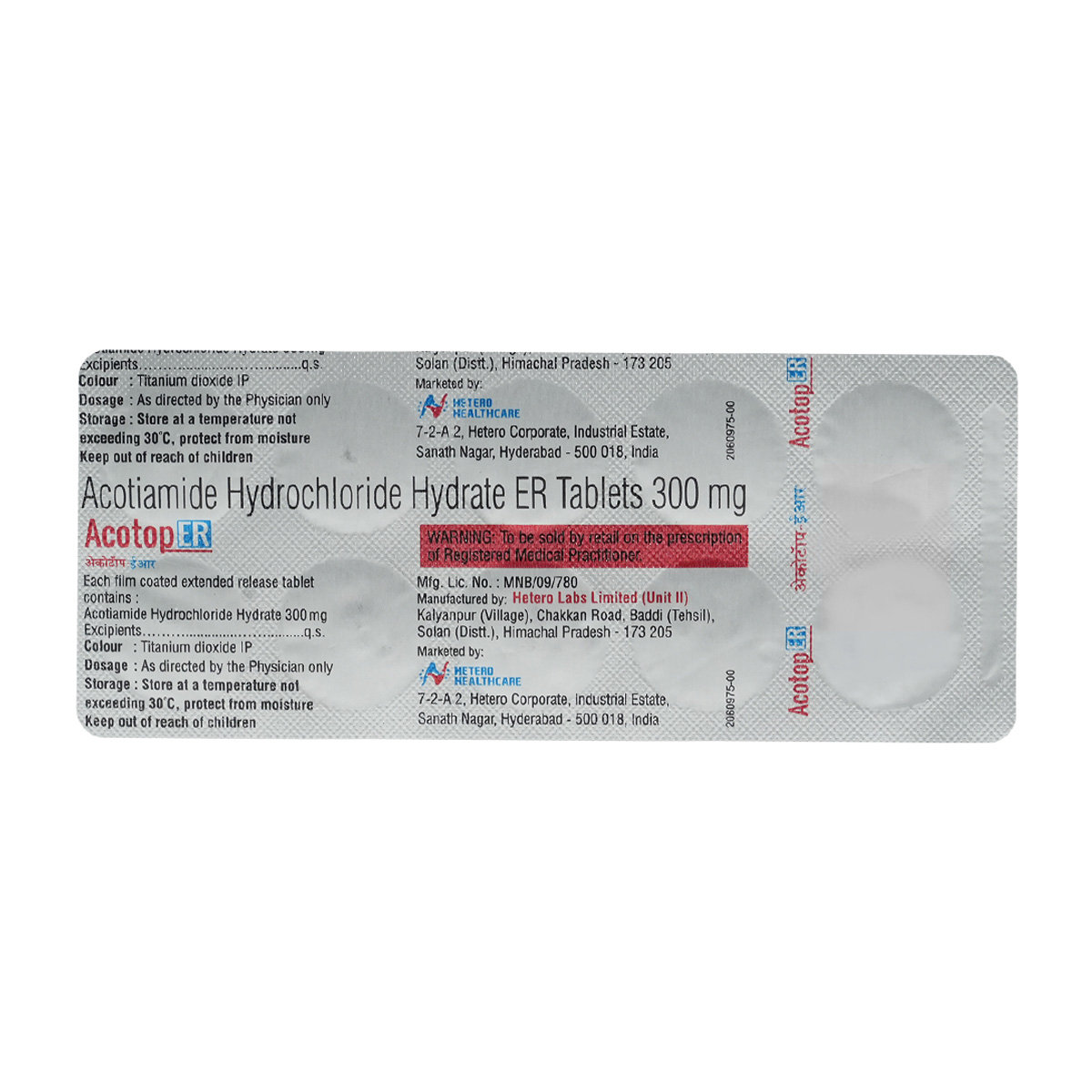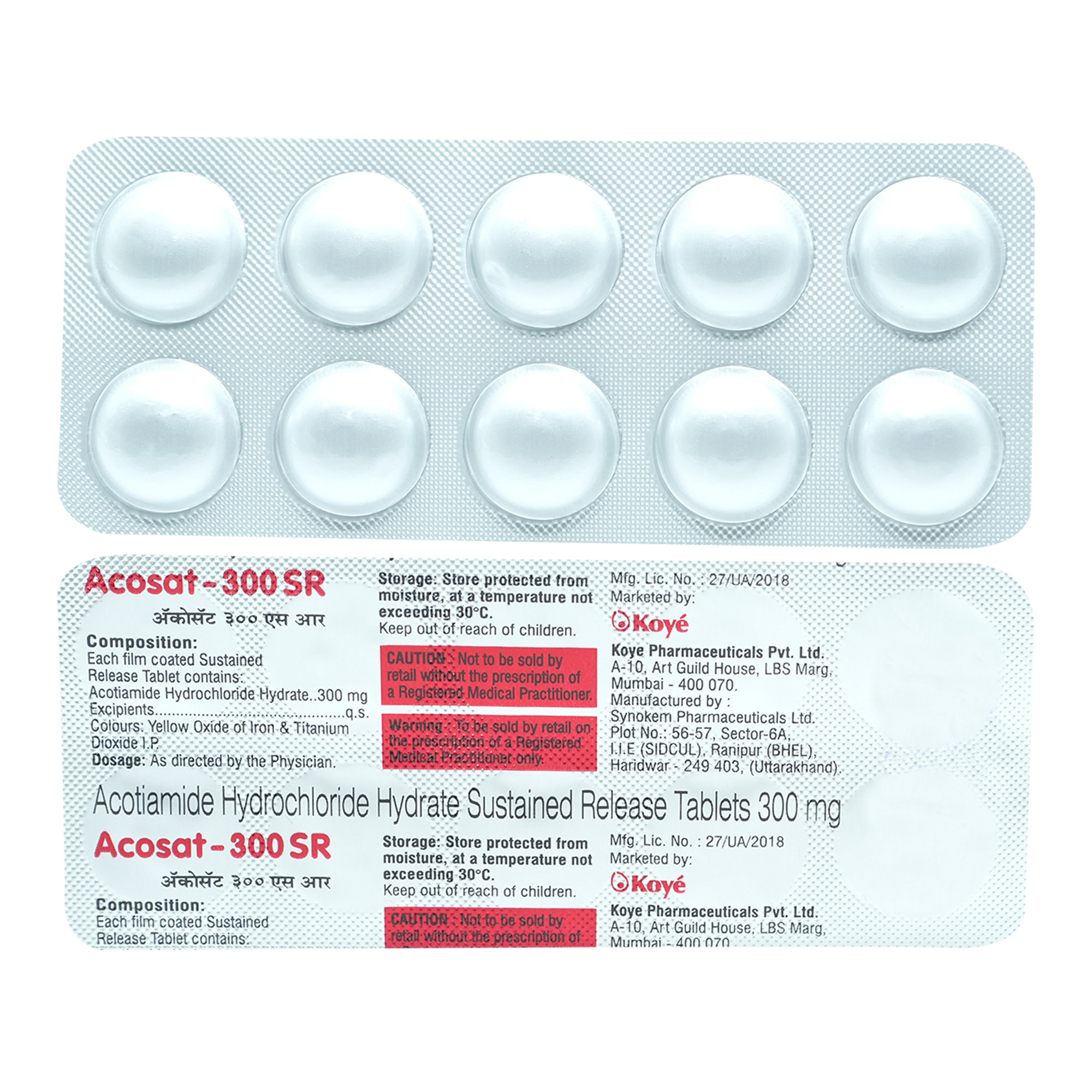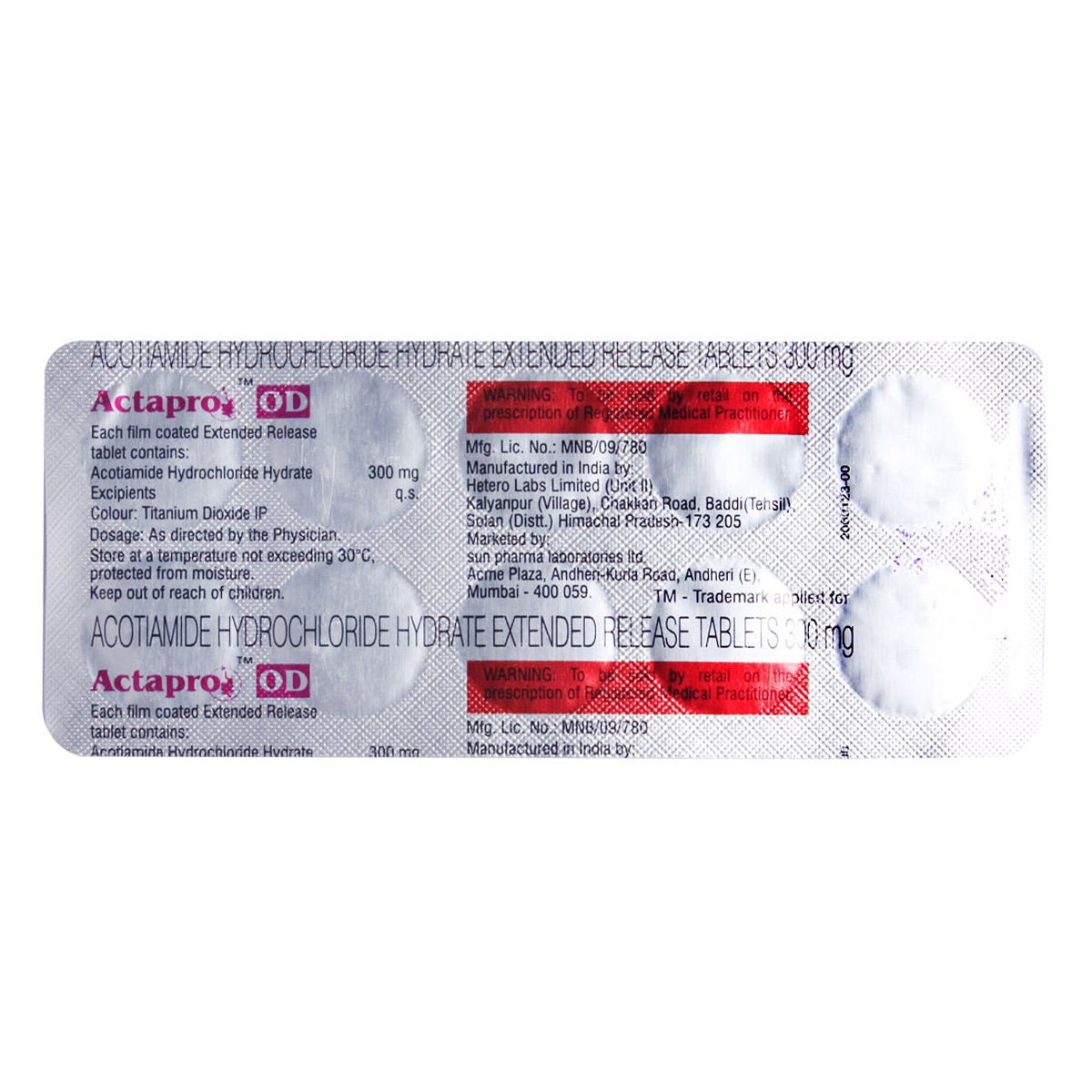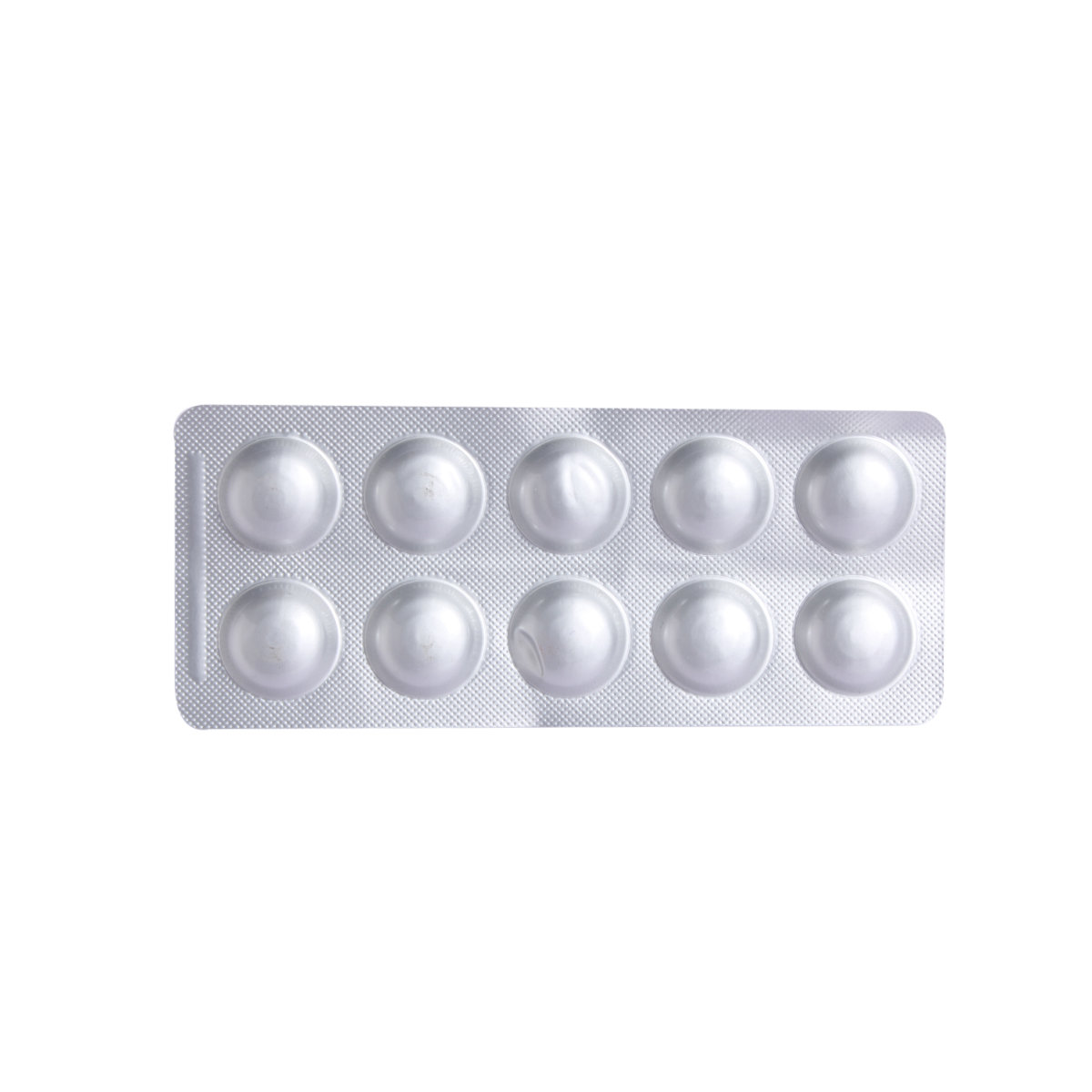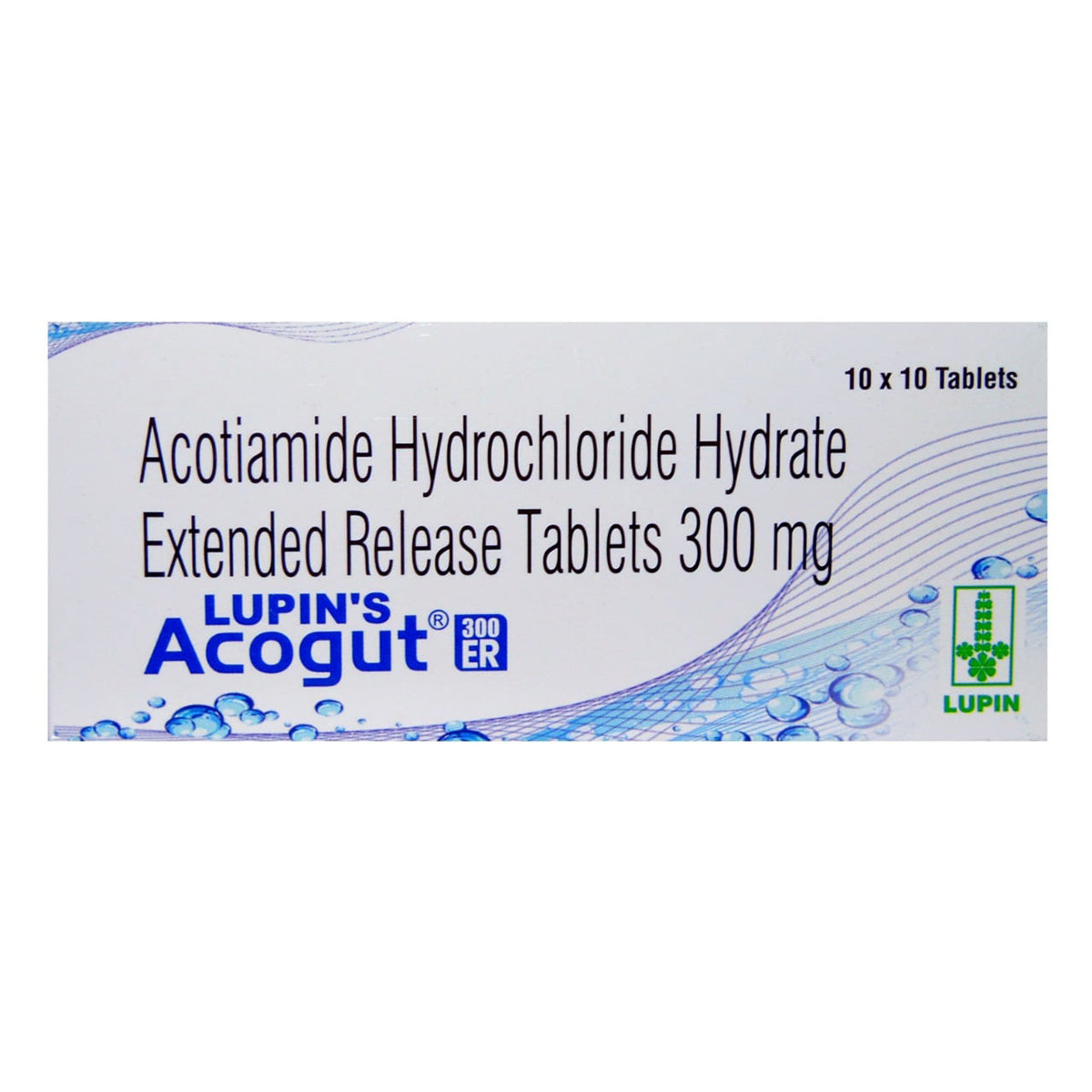Acogram 300 mg Tablet 10's
MRP ₹421.5
(Inclusive of all Taxes)
₹63.2 Cashback (15%)
Provide Delivery Location
Online payment accepted
 Prescription drug
Prescription drugWhats That
Composition :
Manufacturer/Marketer :
Consume Type :
Return Policy :
About Acogram 300 mg Tablet 10's
Acogram 300 mg Tablet 10's belongs to a class of drugs called 'gastroprokinetics'. It is primarily used in the treatment of functional dyspepsia (indigestion). Functional dyspepsia (FD) arises when your upper digestive tract demonstrates symptoms of pain, upset, or early or extended fullness for a month or longer. This situation can be chronic and can change the quality of life. There are some ways to decrease discomfort caused by functional dyspepsia, including medications, lifestyle changes, and therapy.
Acogram 300 mg Tablet 10's contains 'Acotiamide' that increases the level of a chemical (acetylcholine) concentration, which increases the gastrointestinal peristalsis movement. Therefore, it increases intestine motility, accelerates gastric emptying time, and improves food movement throughout the gastrointestinal tract.
Take Acogram 300 mg Tablet 10's as prescribed by your doctor. You are advised to take Acogram 300 mg Tablet 10's for as long as your doctor has prescribed it for you, depending on your medical conditions. You may experience headaches, diarrhea, constipation, rashes, and dizziness. Most of these side effects of Acogram 300 mg Tablet 10's do not require medical attention and gradually resolve over time. However, if the side effects persist or worsen, please consult your doctor.
If you are known to be allergic to Acogram 300 mg Tablet 10's or any other medicines, please tell your doctor. If you are pregnant or breastfeeding, please inform your doctor before taking Acogram 300 mg Tablet 10's. Acogram 300 mg Tablet 10's should not be taken in the conditions like rashes and itching. Acogram 300 mg Tablet 10's causes drowsiness and dizziness it is advisable to not drive unless you are alert. The effect of Acogram 300 mg Tablet 10's with alcohol is unknown. It is advisable to inform your doctor before consumption.
Uses of Acogram 300 mg Tablet 10's
Directions for Use
Key Benefits
Acogram 300 mg Tablet 10's is primarily used in the treatment of functional dyspepsia (indigestion). Acogram 300 mg Tablet 10's is a new gastroprokinetics (enhances the movement of food from the mouth through the stomach and intestines) used for treating gastrointestinal symptoms such as heartburn, vomiting, and nausea. It helps relieve the symptoms like bloating after a meal, pain/discomfort in the upper abdomen, and early satiety (feeling full after eating only a little food). Acogram 300 mg Tablet 10's works by increasing the level of a chemical (acetylcholine) concentration, which increases the gastrointestinal peristalsis movement. Therefore, it increases intestine motility, accelerates gastric emptying time, and improves food movement throughout the gastrointestinal tract.
Storage
Drug Warnings
Acogram 300 mg Tablet 10's should not be taken if you are known to be allergic to Acogram 300 mg Tablet 10's or any other medicines. Please tell your doctor. Patients with kidney or liver disease should be monitored carefully, and the dose should be adjusted accordingly. Acogram 300 mg Tablet 10's should not be taken in a condition like heart disease as Acogram 300 mg Tablet 10's may cause irregular heartbeat. Before taking Acogram 300 mg Tablet 10's, inform your doctor if you ever had gastrointestinal bleeding, jaundice, or intestinal perforation (small hole in the intestine). If you are pregnant or breastfeeding, please inform your doctor before taking Acogram 300 mg Tablet 10's. Acogram 300 mg Tablet 10's should not be taken in the conditions like rashes and itching. Acogram 300 mg Tablet 10's causes drowsiness and dizziness, it is advisable to not drive unless you are alert. The effect of Acogram 300 mg Tablet 10's with alcohol is unknown. It is advisable to inform your doctor before consumption.
Diet & Lifestyle Advise
- Avoid foods such as tomatoes, coffee, chocolate, and spicy and fatty foods as they may cause heartburn or worsen the condition.
- Eat small portions of food frequently.
- Do regular exercise, such as for a minimum of 30 minutes per day. Maintain a healthy body weight as obesity may also cause heartburn.
- Avoid foods that can worsen your symptoms, like citrus fruits, coffee, and high fat, pickled and spicy foods.
- Avoid consumption of alcohol and quit smoking.
Side Effects of Acogram 300 mg Tablet 10's
- Headache
- Diarrhea
- Constipation
- Rashes
- Dizziness
- Abnormal liver function
Habit Forming
Therapeutic Class
All Substitutes & Brand Comparisons
RX
Acotop ER 300 Tablet 10's
Hetero Drugs Ltd
₹280
(₹25.2 per unit)
40% CHEAPERRX
Out of StockAcosat 300 SR Tablet 10's
Koye Pharmaceuticals Pvt Ltd
₹315
(₹28.35 per unit)
32% CHEAPERRX
Acotibien-300 SR Tablet 10's
La Renon Healthcare Pvt Ltd
₹337.5
(₹30.38 per unit)
27% CHEAPER
FAQs
Drug-Drug Interactions Checker List
- DICYCLOMINE
- TRIHEXIPHENIDYL
- IPRATROPIUM
- BELLADONNA ALKALOIDS
- BENZTROPINE MESYLATE
- FLAVOXATE
- ATROPINE
- HYOSCYAMINE
- SCOPALAMINE
Special Advise
- Keep your doctor informed about the ongoing medications or the ones you have taken in the past, including over-the-counter medicines and herbal medicines, before using Acogram 300 mg Tablet 10's.
Disease/Condition Glossary
Functional dyspepsia (FD) arises when your upper digestive tract demonstrates symptoms of pain, upset, or early or extended fullness for a month or longer. This situation can be chronic and can change your quality of life. There are some ways to decrease discomfort caused by functional dyspepsia, including medications, lifestyle changes, and therapy. Upper abdominal discomfort is defined as bloating or gassiness, burning sensation, nausea, or feeling full too rapidly after eating.

Have a query?
Alcohol
Safe if prescribed
The interaction of alcohol with Acogram 300 mg Tablet 10's is unknown. Please consult a doctor before consuming alcohol while using Acogram 300 mg Tablet 10's.
Pregnancy
Consult your doctor
Avoid taking Acogram 300 mg Tablet 10's if you are pregnant unless prescribed by a doctor. Please consult your doctor if you have any concerns regarding this, your doctor will prescribe only if the benefits outweigh the risks.
Breast Feeding
Consult your doctor
This Acogram 300 mg Tablet 10's is not recommended unless prescribed by a doctor. Please consult your doctor if you have any concerns regarding this, your doctor will prescribe only if the benefits outweigh the risks.
Driving
Safe if prescribed
Acogram 300 mg Tablet 10's may cause dizziness. So, it is not recommended to drive or operate heavy machinery when you take Acogram 300 mg Tablet 10's.
Liver
Consult your doctor
Take Acogram 300 mg Tablet 10's with caution, especially if you have a history of Liver diseases/conditions. The dose may be adjusted by your doctor as required.
Kidney
Consult your doctor
Take Acogram 300 mg Tablet 10's with caution, especially if you have a history of Kidney diseases/conditions. The dose may be adjusted by your doctor as required.
Children
Safe if prescribed
Avoid using Acogram 300 mg Tablet 10's in children as there is no information available due to lack of research. Inform your doctor before using Acogram 300 mg Tablet 10's.




